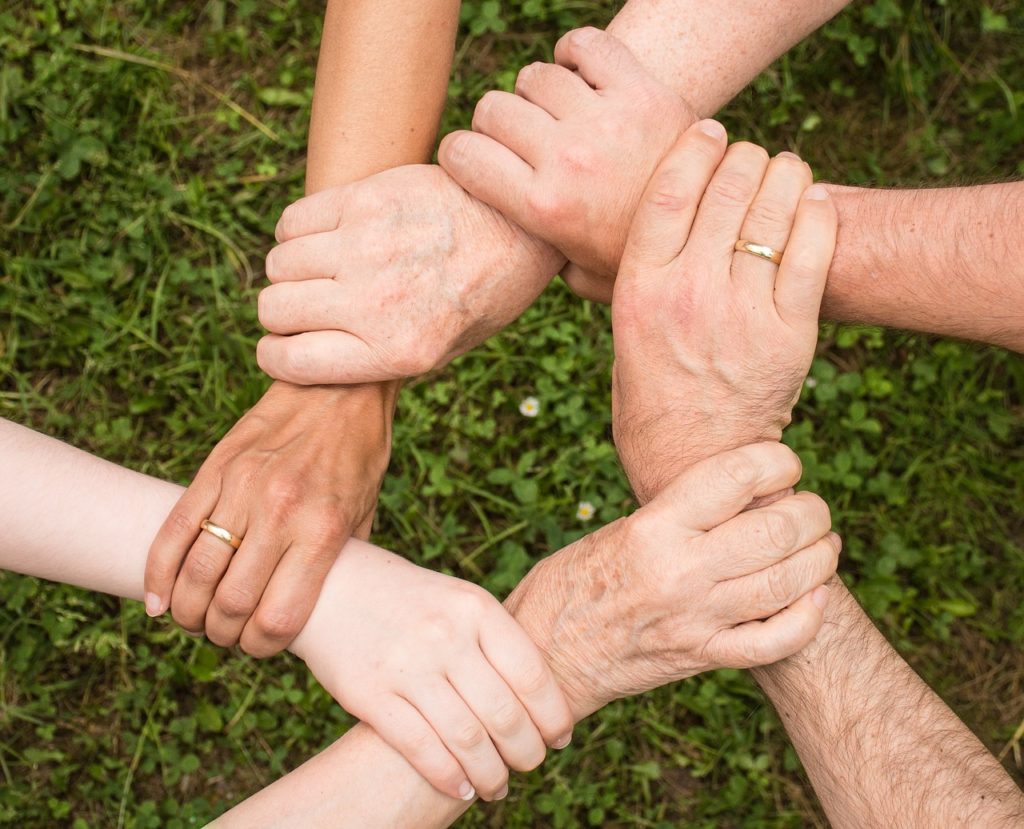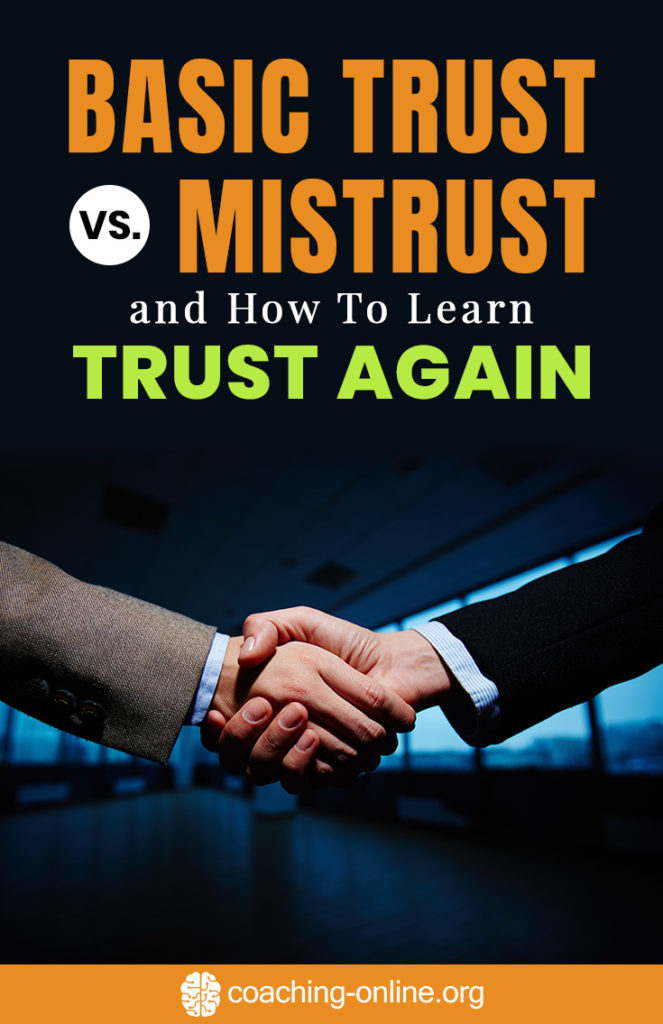In this article, you’re going to learn how to regain basic trust.
Basic trust is an aspect of psychology that all humans are born with, but it’s possible for us to lose it too.
Thankfully, with the correct treatment, we can regain it.
I know because I’m a life coach with a background in hypnotherapy and systemic therapy, who has helped many clients overcome trauma and begin to trust again.
So, read on to discover what basic trust is, how you can lose it, and what you can do to begin trusting others again.
What Is Basic Trust?
In an interview german brain scientist, Professor Gerald Hüther defined basic trust by splitting it into three layers.
These are:
- Trust in your abilities. The belief in yourself and that you can make sensible decisions for your own wellbeing.
- Trust in the community. Our brains are hard-wired for connections. The belief that most people are friendly, not dangerous.
- Trust that everything will turn out fine. The belief that everything happens for a reason and that a happy ending is on the way. All religions use this through a story that a higher power is protecting you.
In his famous research on ‘Eight Stages Of Psychosocial Development’, Erik Erikson suggested that humans learn whether they can trust the world around them during their first 18 months of life.
The key to this development mostly lies with the mother, who feeds, reassures and meets her infant’s daily needs during their first years on this planet.
The first part of Erik Erikson’s eight-stage theory concludes that, if the child is well nurtured and protected, they should be fit to carry a strong sense of basic trust for others throughout the rest of their life.

How Do We Lose Basic Trust?
If we are not raised in a safe environment and regularly experience fear throughout our first 18 months, it’s common that we’ll struggle to trust others, perhaps well into adulthood.
Indeed, it may take proactive action from a therapist in order to reverse this.
However, it’s not just in our infancy that our inherent basic trust can transform into mistrust.
Traumatic experiences in adulthood can also have an impact.
Examples Of Traumatic Experiences Where People May Lose Basic Trust
Here are three common examples where an adolescent child or an adult may lose one or all three layers of basic trust;
- Parents leaving. Children develop the three layers of basic trust thanks to the care, protection and information given to them by their parents. However, if one of these parents ruins the relationship, perhaps by leaving or hurting them in some way, this can create lasting trust issues in their child.
- Betrayal or abandonment by a romantic partner. This can affect our basic trust, especially in cases when we had developed a sense of dependency on a partner to maintain our emotional needs.
- A rape or domestic assault. This is perhaps the most extreme example of a traumatic experience, where one or all three layers of basic trust are often ripped away. In such cases, a person may no longer trust in their ability to make intelligent decisions, their community to protect them from a violent act, nor a higher power to save them from a horrific personal experience.
In these scenarios, it’s also often recommended you see a professional therapist in order to reverse this.

How To Regain Basic Trust
A small sense of mistrust is good for us.
It acts as a warning system that can protect us from physical pain and potentially save our lives.
However, too much mistrust prevents the development of close relationships with other people, and this can make us desperately unhappy.
If you’re in this position, it often pays to seek assistance from a trained therapist.
Here are some of the exercises that may be recommended for your individual situation.
Related Articles on Self Confidence
Self-trust exercises
A therapist may place you (or encourage you to place yourself) in certain situations where you are forced to take action outside of your comfort zone.
In these situations, your brain will be in an incoherent state.
Yet, by finding a way to manage these potentially uncomfortable situations during this incoherency, you can learn to gain more trust in your abilities.
The exercises prescribed will depend on your individual struggles.
However, a simple online search for “comfort zone exercises” can offer a sense of what might help you.
The key to success is to engage in exercises that are just outside your comfort zone, then build yourself up over time.
That’s why it’s good to work with a professional who understands human psychology and knows how far they can push you.
This approach can also work to help you learn to trust in your community.
For example, if you were stuck with the belief that all people are mean or dangerous, you might be prescribed some basic social challenges that increase in difficulty over time.
In this case, you’d eventually see for yourself that people are generally nice and helpful.
Trauma Therapy
Trauma therapy can take many forms, including talking therapy, systemic therapy or hypnotherapy.
In each case, a therapist will be able to dive into your memories of a traumatic experience and search for your perspective of what happened.
They will also be able to rewire your brain to help you to see a new positive perspective of what happened.
This process is called neuroplasticity.
It can take a long time to fully recover from a deeply traumatic incident, yet trauma therapy has been proven to be a highly effective aid for this process.

Learning To Give Love
There is a level above basic trust, and that is called love.
For this reason, a therapist will often engage with you and/or suggest exercises that encourage you to be a more loving and selfless person.
Instead of trying to get something whenever you communicate with people, you can instead learn to focus on giving.
The interesting thing is: those with this mindset rarely struggle with mistrust and are often a lot happier as a result.
This is an element of human psychology that everyone would benefit from experiencing for themselves.
Thanks for stopping by and reading my guide. Share this piece with a friend to help them too!
Related Posts
